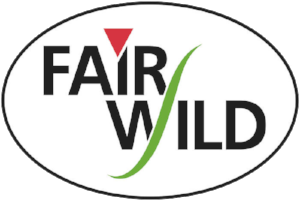Starting your FairWild journey
Step into a world where wild plants thrive, communities flourish, and businesses lead with integrity. FairWild certification is your assurance that the wild plant ingredients you source are not only legally and ethically harvested but also contribute to a sustainable future for wildlife, ecosystems, and the people who rely on them. We believe in a world where biodiversity, people, and businesses can flourish in harmony through responsible wild harvesting.
In a landscape where transparency and genuine impact are paramount, FairWild stands as a beacon of trust. Our rigorous, third-party audited system ensures complete traceability and provenance, addressing the critical challenges faced by businesses today – from navigating complex legal frameworks to meeting the growing demand for ethically sourced ingredients.
We help you build brand loyalty, avoid greenwashing fears, and achieve measurable positive impact, fostering resilient supply chains and attracting conscious investors.
WHAT PRODUCTS CAN BE CERTIFIED?
Products collected from the wild (e.g. medicinal and aromatic plants, gums and resins, wild fruits, nuts and seeds, mushrooms);
Processed ingredients for finished products (e.g. essential oils and fatty oils);
The FairWild certification journey
Our certification journey is designed to be a collaborative, transparent and supportive process. It’s a commitment that unfolds over five years, during which certified operations progressively deepen their adherence to the FairWild Principles and Criteria, continuously building robust sustainability systems. Each year, our authorised certification bodies conduct on-site visits to ensure continuous improvement and accountability.
The process is clear and straightforward:
1. GET IN TOUCH
Start by reaching out to a FairWild representative. We’ll guide you through the initial steps, including the FairWild application form. This helps us understand your operation and initiates the process of assessing any potential risks associated with the wild plant species you wish to certify.
2. Prepare for Your Audit
Preparation for your audit is a guided process, including a self-assessment, with expert support from FairWild. We believe in clear, hands-on steps to ready you to showcase your sustainable practices.
3. Connect with a Control Body
We will introduce you to accredited Control Bodies, which are independent groups authorised to carry out the FairWild audit. They will provide a quote and help you schedule the audit, typically during your main harvest season.
4. The on-site Audi
This crucial on-site inspection, typically spanning 2–3 days, assesses your compliance with the FairWild Standard. It's an opportunity to see firsthand how your dedication to responsible sourcing is making a tangible difference on the ground.
5. Achieving Certification
The culmination of your efforts! The final assessment and approval confirm your full compliance with FairWild certification requirements.
6. Welcome to the FairWild Family!
You are now part of a vibrant community of partners who are making a real difference for Plants, People, and Planet! FairWild certificates are valid for 15 months. Annual audits, thoughtfully aligned with species harvest times, take place to ensure ongoing dedication and continuous improvement.
Bespoke services
Our tailored approach covers the development of bespoke in-house sustainability monitoring systems, micro-audits for small enterprises, and enhanced assurance audits for especially high-risk situations. Choose the approach that’s right for you based on your needs and our advice.
Chain of custody
The journey of wild plant ingredients, from their natural habitat to your hands, is a beautiful and often complex one. At FairWild, we recognise and value this intricate value chain, fostering strong connections among all the dedicated actors involved. We define three key types of partners who collaboratively bring the benefits of FairWild to life:
Wild Collection Operations: These are the heart of our mission – the skilled harvesters and operators who ethically collect wild plants. They undergo an annual on-site audit by an approved control body to achieve FairWild certification, ensuring sustainable practices at the source.
Traders and Processors: These vital partners register with the FairWild Foundation to responsibly buy and sell our certified ingredients. They are crucial in extending the reach of FairWild-assured materials throughout the supply chain, connecting harvesters with manufacturers.
Finished Product Manufacturers (Licensees and Microenterprises): These are the brands you see and trust! By registering with the FairWild Foundation and signing a license agreement, they proudly use the FairWild mark on their product labelling and marketing. This allows you, the consumer, to confidently choose products that champion sustainability, fair trade, and the preservation of wild places.
For all our listed ingredients, see Buy Fairwild.


